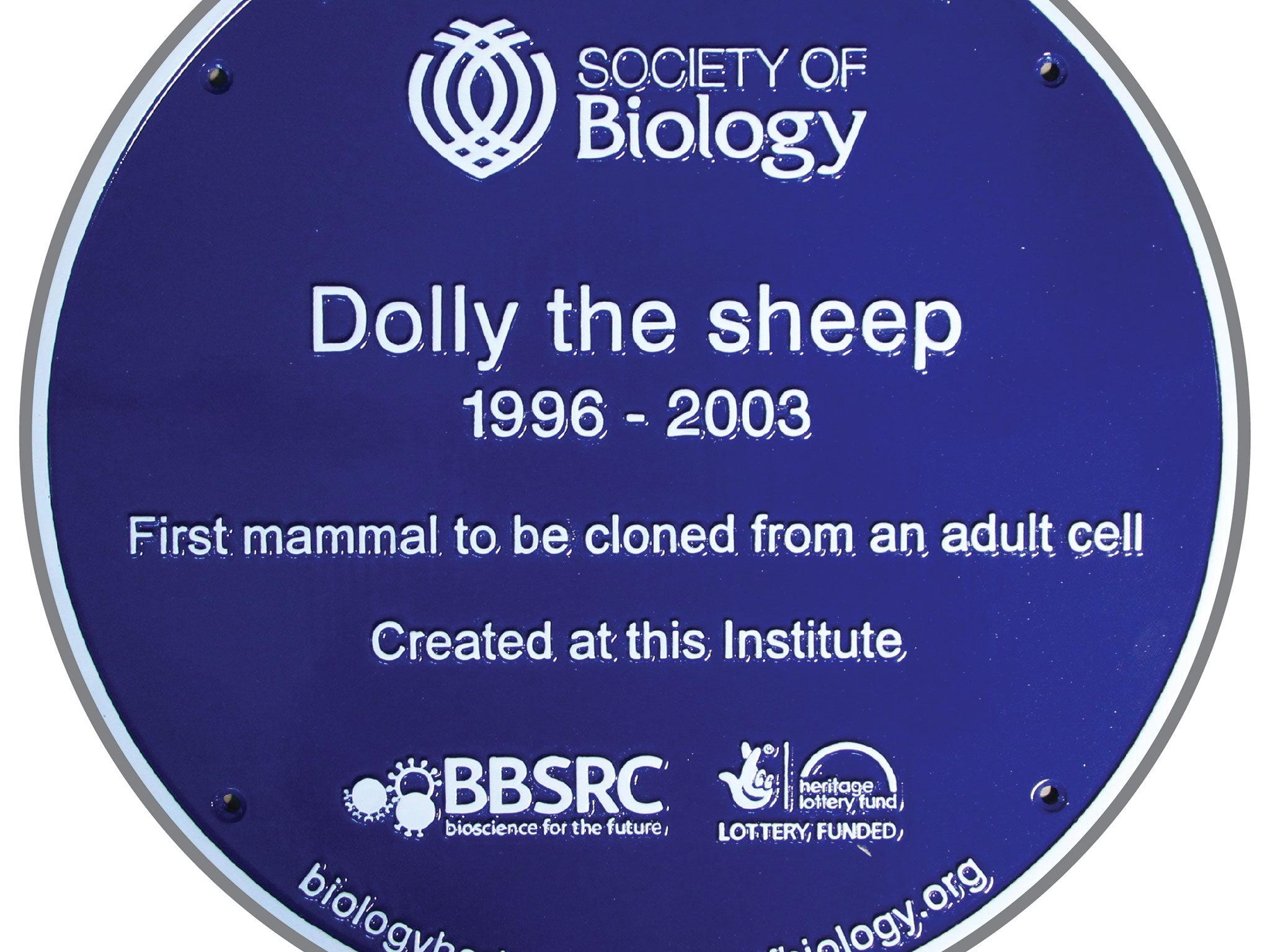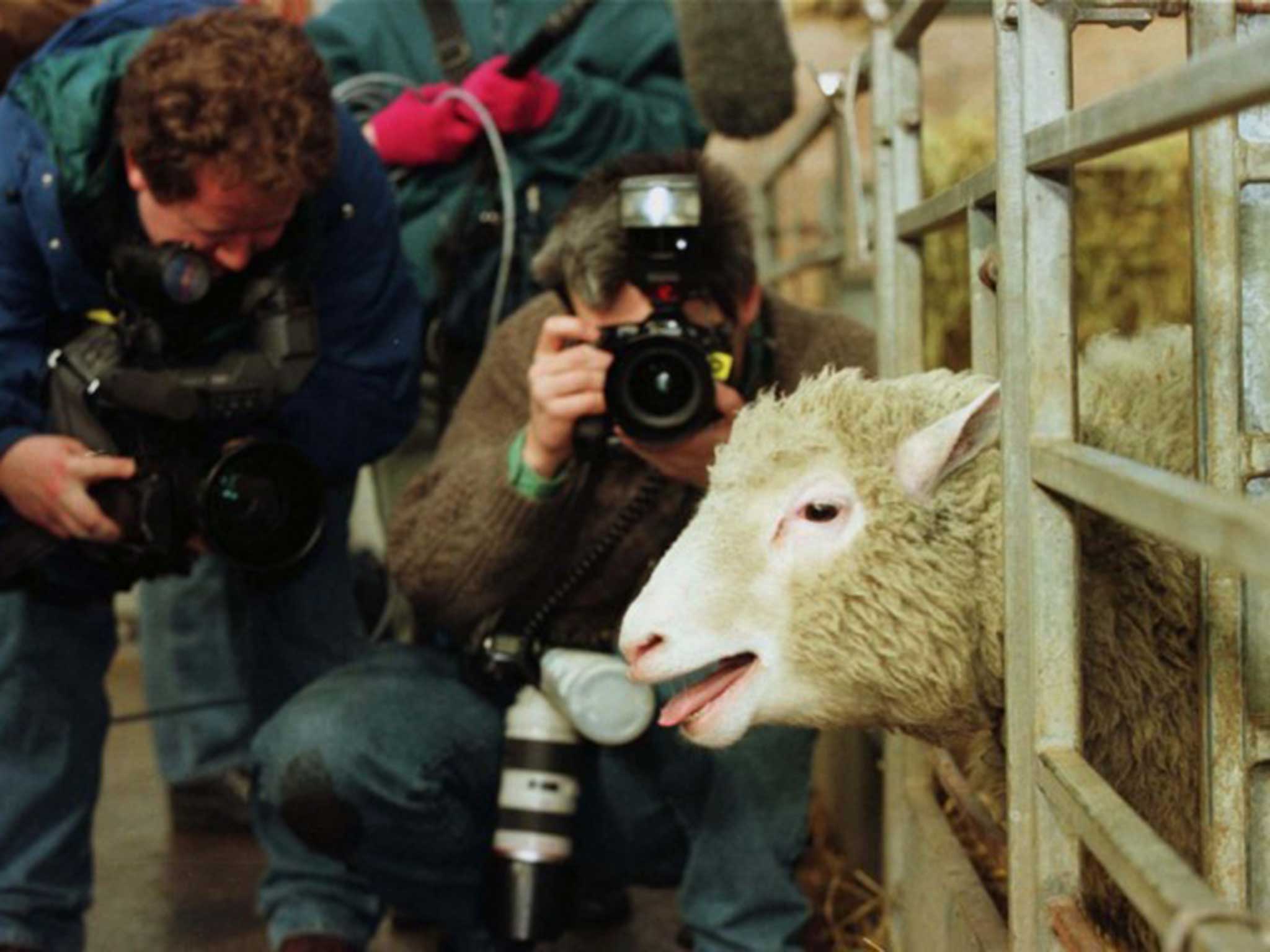Dolly the sheep to be honoured with blue plaque in Edinburgh
The sheep is being hailed as one of the 'unsung heroes' of biology

Your support helps us to tell the story
From reproductive rights to climate change to Big Tech, The Independent is on the ground when the story is developing. Whether it's investigating the financials of Elon Musk's pro-Trump PAC or producing our latest documentary, 'The A Word', which shines a light on the American women fighting for reproductive rights, we know how important it is to parse out the facts from the messaging.
At such a critical moment in US history, we need reporters on the ground. Your donation allows us to keep sending journalists to speak to both sides of the story.
The Independent is trusted by Americans across the entire political spectrum. And unlike many other quality news outlets, we choose not to lock Americans out of our reporting and analysis with paywalls. We believe quality journalism should be available to everyone, paid for by those who can afford it.
Your support makes all the difference.Dolly the sheep is to be honoured with her very own blue plaque marking her short life in Edinburgh.
Scientists will be gathering on Wednesday for an unveiling ceremony at the Roslin Institute of Edinburgh University, where Dolly was born and lived.
The plaque will read: “Dolly the Sheep, 1996-2003. First mammal to be cloned from an adult cell.”

It is not the first time an animal has been honoured - Nipper, the black and white HMV dog, was immortalised with a blue plaque in Piccadilly, central London.
Dolly’s is part of a scheme by the Society of Biology to celebrate 10 “unsung heroes” of the science across the UK.
Mark Downs, chief executive, told The Times they wanted to honour not just the sheep but the team behind the landmark project to create the first animal cloned from an adult cell.
“So many people were involved,” he added. “It seemed a bit unfair to single out one individual.”

Sir Ian Wilmut, who was the lead researcher, will be making a short speech at the unveiling.
“The birth of Dolly, the first clone of an adult animal, revolutionised our understanding of the mechanisms that regulate development," he is expected to say.
"We used to believe that once a cell had differentiated to a specific tissue type it could not be changed. The birth of Dolly showed that this is not the case. This result stimulated research which is now providing revolutionary opportunities in medicine.”

Other Society of Biology plaques commemorate scientists including the IVF pioneers Steptoe, Edwards and Purdy, Richard Owen, who invented the word "dinosaur" and Dorothy Hodgkin, who discovered the structure of Penicillin.
The public is being invited to attend some of the free plaque unveilings, which are part of the Biology: Changing the World project.
Dolly died in 2003 aged six after being put down because she had a progressive lung disease.
Her birth on 5 July 1996 was initially kept a secret while a formal scientific paper about the process that created her was prepared and the news did not leak until the following February, days before the document was due to be published.
She was named after the country singer Dolly Parton – because the original cell used to create her came from a mammary gland.
Join our commenting forum
Join thought-provoking conversations, follow other Independent readers and see their replies
Comments